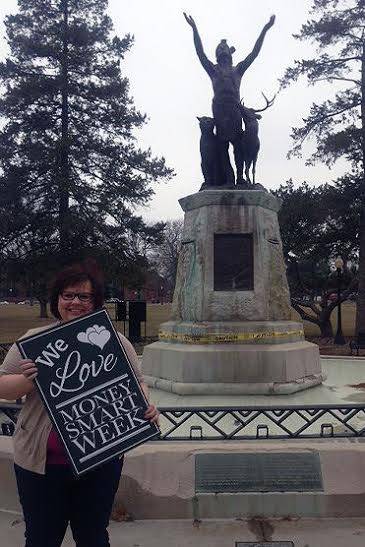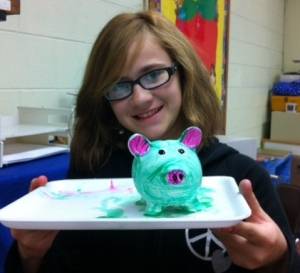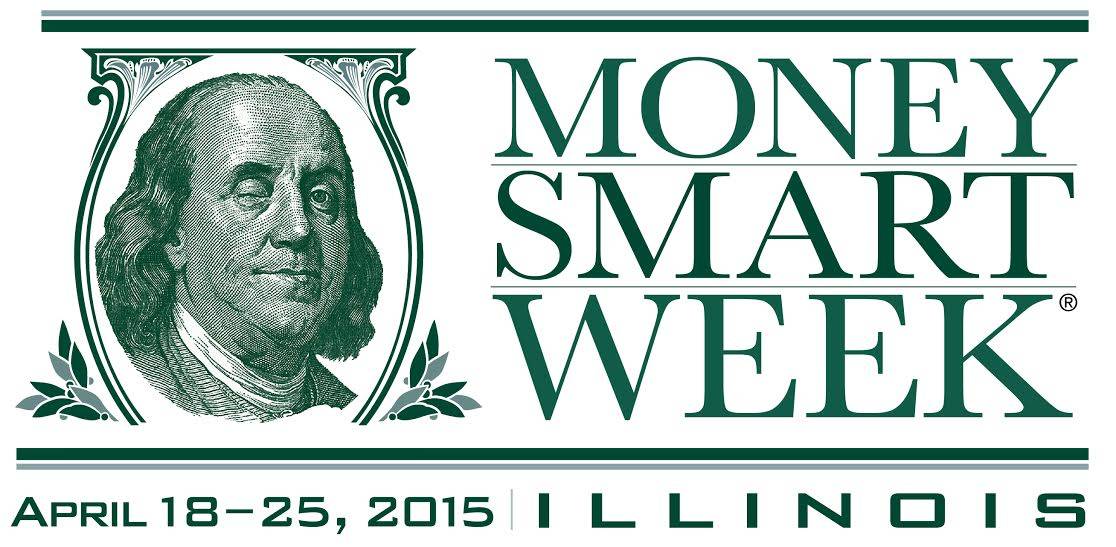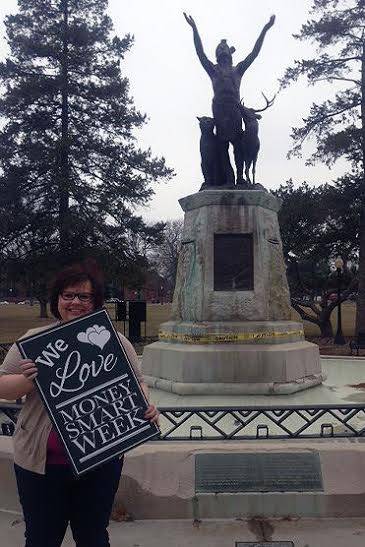 Money is scary. A twenty dollar bill on the ground is exciting, but I think I can speak for all college students when I say actually thinking about money and our future with money is scary. It’s universally scary. It’s scary for recent graduates entering the real world. It’s scary for our parents trying to pay for college and save for retirement. In 2002, the Federal Reserve Bank of Chicago started Money Smart Week in an attempt to address these fears. This year it is happening from April 18th through the 25th. Kathy Sweedler is the co-chair of the Money Smart Week events in Champaign County. She’s also the Consumer Economics Educator for the University of Illinois Extension in Champaign County. All of the Money Smart events are free. Sweedler promises nobody is going to try to sell you insurance at the end. There are events geared towards all ages from story time for kids at the Urbana library to talks about social security and buying a home. I talked with Sweedler about money mistakes to avoid, and why people should spend more time learning about money.
Money is scary. A twenty dollar bill on the ground is exciting, but I think I can speak for all college students when I say actually thinking about money and our future with money is scary. It’s universally scary. It’s scary for recent graduates entering the real world. It’s scary for our parents trying to pay for college and save for retirement. In 2002, the Federal Reserve Bank of Chicago started Money Smart Week in an attempt to address these fears. This year it is happening from April 18th through the 25th. Kathy Sweedler is the co-chair of the Money Smart Week events in Champaign County. She’s also the Consumer Economics Educator for the University of Illinois Extension in Champaign County. All of the Money Smart events are free. Sweedler promises nobody is going to try to sell you insurance at the end. There are events geared towards all ages from story time for kids at the Urbana library to talks about social security and buying a home. I talked with Sweedler about money mistakes to avoid, and why people should spend more time learning about money.
Smile Politely: Why do you think it’s important to start kids young learning about money?
Sweedler: Because it’s really a lifelong process. You need to start talking about it when kids are little, so they can be thinking about it, building up skills, and learning the language. It just keeps going. Even when you get into your 50s you think you’ll know everything, but it’s not true. There is always new stuff that comes out and new situations in your life you have to learn about. So starting when they’re little when you can make it fun but have them start thinking about, “Oh I can empower myself with money. I can use money to get where I want to go instead of swimming upstream with money.” The kids are always so excited about it.
 SP: What’s the biggest mistake you see adults make with money?
SP: What’s the biggest mistake you see adults make with money?
Sweedler: I think the biggest mistake I see them make is they think, ‘I’ll start to save for big things whether it being retirement or buying a home as soon as I have a little more money. So you know next year it’ll be better and then I’ll start to save. Or I’ll wait until this happens and then I’ll save.” There is always something else to spend our money on. Just starting to save now and saving small amounts and starting to make it a habit is a much better habit than waiting.
SP: How do you think people should find money to save?
Sweedler: I think if you can visualize this dream you have whether it be to travel the world, buy a house, or retire comfortably then it’s a lot easier to think, “Should I put my five dollars towards a treat after work or should I put the five dollars towards that goal?”. Then you have an idea of what you’re doing and not just saving because you should.
SP: What’s the biggest money mistake students make?
Sweedler: I think one mistake recent graduates make is they find out they are going to get a job, and it sounds like so much money. It is a lot more money than they’ve been dealing with. They sometimes rush out and kind of lock themselves into expenses, whether it be a new car or an expensive apartment, without sitting down and itemizing what costs are really going to be. Then the money goes away faster than they think it will by the time they start paying taxes, picking up some of the expenses other people might have been paying for them, paying student loans, and paying moving costs. It’s tighter than they think, and if they had known they might not have locked themselves into those expenses.
Another thing for younger students is that the research shows they overestimate how much money they are going to make when they get out of school. They then expect that they are going to be able to pay back a larger student loan debt than they will actually be comfortable with.
SP: How can students cut back on loans without switching schools?
Sweedler: Some people could choose to go to community college for a couple years. Otherwise, watching living expenses like what you are spending on rent or cell phone bills. Even little things like how many days a week you eat out does add up. It doesn’t add up as much as tuition, but it does add up.
SP: If there is one lesson you want people to take away from Money Smart Week, what would it be?
Sweedler: That learning about financial wellness is a lifelong process. Take advantage of opportunities when you can build your knowledge, so that you can make better decisions.
Money is a really big deal in our lives. It can open up opportunities, but it can also be a barrier if you don’t have the money to get where you want to go. Making the most of it and becoming more informed can make huge changes in your life. Taking the time to actually do that is a big deal. The research shows that people don’t spend much time thinking about or planning their finances when really it can make a big difference in what someone can do.









